Last year, a group of farmers and producers got together with a goal in mind: to produce cotton t-shirts using sources within 750 miles.
To give you some perspective, the average cotton t-shirt travels over 17,000 miles before you snag it at the store. They’re working to educate consumers about the supply chain involved in creating cotton shirts and the importance of reducing their carbon footprints. Here’s a quick video that gives an overview of the project:
That’s quite a footprint reduction, and I love that this project also supports the local economy in the Carolinas! I do have one issue with Cotton of the Carolinas, however, and it’s that the cotton they grow is Monsanto’s genetically engineered cotton.
Monsanto’s GM Cotton
Part of me wonders how eco-friendly an operation can be if it supports biotech giant Monsanto. For folks unfamiliar with this company, Monsanto produces genetically modified seeds for crops like corn, soybeans, and cotton.
There are some big questions about the safety of GM crops, and Monsanto’s ethical record is dubious at best. The allure of GM crops is that they use fewer pesticides than conventional crops, but that is really only true in the short term. As more and more farmers planet genetically engineered crops, we’re seeing an increase in weeds resistant to Roundup, the pesticide that farmers use with these crops. Farmers could just use different pesticides, but the whole point of the GM seed is that these crops are Roundup resistant, meaning they can spray as much as they want without damaging the crop.
Resistant weeds mean that in the long term farmers spray more pesticides than ever, which damages the soil, pollutes the water, and endangers human and animal health.
The Cotton of the Carolinas site mentions that they’re using Monsanto’s seeds “for now,” and I hope that they’ll consider switching to organic or non-GMO cotton in the future! I very much appreciate how transparent they are about their production process and supply chain. Not all companies would come right out and tell you they’re using Monsanto’s seeds. Good on them for being honest!
So, what do you guys think? Does the reduced mileage make up for supporting Monsanto? Have you run across other dirt to shirt operations that are using organic seeds? Share your thoughts in the comments!

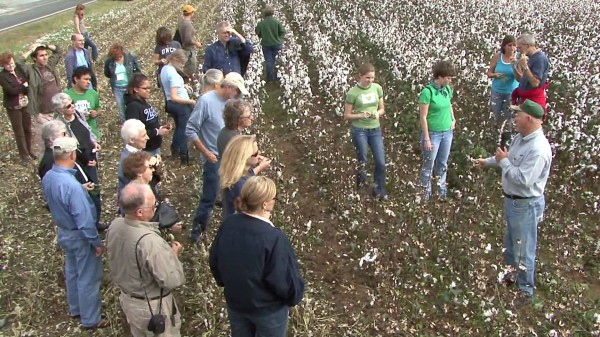
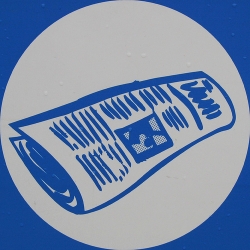
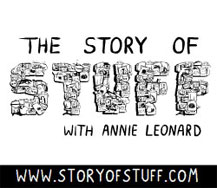
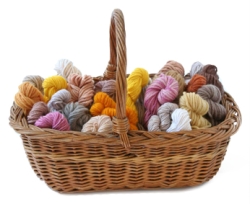




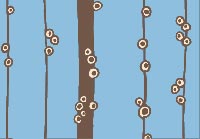
I love the idea behind this. I have to commend the effort. However, the fact that Monsanto is any way involved totally taints this for me.
I, too, appreciate the transparency but, unless they are also transparent about when they will stop using GM crops I can’t get terribly excited about it. I want to though, so maybe I’ll try and remain optimistic about it.
The fact is that about 90% of cotton is genetically engineered in the US, due in large part to the benefits that the farmers get for growing it. For instance, Cotton Bollworm did a lot of damage to the crop in the past, and required a huge amount of insecticides to control. (making cotton a very pesticide-heavy crop) Now, bollworm is scarce enough that some farmers are considering switching to some non-GE seeds to save on the licensing fees that some with the GE cotton. The Cotton T-shirt site doesn’t mention whether the cotton is a Bt insect-resistant variety, it just mentions the herbicide-tolerance trait, ‘Roundup Ready.’
On the flipside, organic cotton requires more land to produce the same amount of fiber, which should be taken into account if you are gauging the environmental impacts.
Personally, I would rather wear a cotton shirt that I know has been grown with Bt cotton than one that required more pesticides or more land to produce. There is another option not being considered, and that is growing a GE Bt cotton with organic methods. You couldn’t certify it under current organic standards, but that could be the best of both worlds. Something like a local project like this could do it.
I’d like to point out that while Monsanto is horribly unethical in its dealings with growers, the Roundup-Ready trait was developed the old-fashioned, multi-decade way, with traditional breeding methods. And the resulting reduction in herbicide use has allowed the fish, frogs, and wading birds to return to my family’s farm. I suspect that Monsanto is discounting or possibly even donating seed to The Cotton T-shirt project for good publicity, though.
So you are saying you don’t understand the difference between a pesticide and an herbicide?
Love your Idea but please use non-gmo cotton. Agrobacterium definitely has the ability to transfer genes to people with compromised immune systems.
This is from SUNY in ’86 although monsanto is spending alot of time and money to refute this. This company has a LONG track record of insufficient
testing on their products. Watch “the corporation” in regard to rbst. They tested rbst for 60 days and the fda approved it, altough it makes cows sick and increaes igf-1 in people. Also a lawyer form monsanto was hired by the fda in 06 I think. This ex-lawyer from monsanto got to decide that food labels in america do not have to say if an ingredient is gmo. This is robbing me of choice. Also all gmo is subsidized with your tax dollars. This hides the truth that it is actually more expensive. With the subsidy gmo food is actually more expensive but they can sell it at a loss because the government gives them your tax dollars on the back end. ALso, hehe the roundup is starting to express itself from the roots which is killing the mycorrizhae and beneficial bacteria in the soil. I grow organic and beneficials are crucial to proper nutrient breakdown. People keep saying organic doesnt produce as much. I am having a hard time finding a study that used mass amounts of benficials instead of letting them build up naturally. I get great results with compost teas and very little fertilizer.